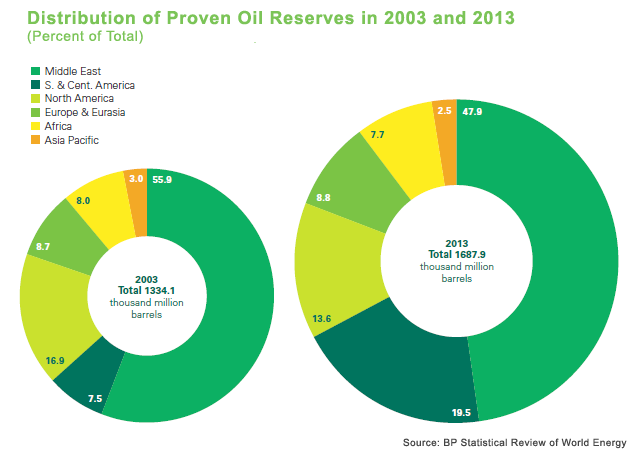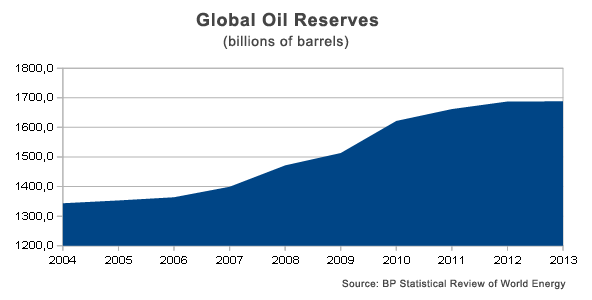The world demand for oil is extremely high, and so far no substitution for the black gold has been established. This brings us to the eternal question – when will the oil run out? Warnings about the imminent depletion of oil deposits have been announced over the past several decades, but so far they haven’t come true – world oil production continues to grow.
According to data from the Statistical Review of World Energy, at the end of 2013 proven oil reserves in the world were equal to 1.6879 trillion barrels.
In 2013, 31.7 billion barrels of oil was extracted from the Earth’s mineral surface. If you divide the total reserves by annual production, this gives us the answer of 53 years left until the earth runs dry of oil. However, this analysis is far too simple. Proven oil reserves continue to increase with the discovery of previously unknown fields, and at the same time new technology continually improves production of hydrocarbons.
In the middle of the 20th century, experts expressed doubts about the presence of oil in Western Siberia, now Russia’s main producing region. Now researchers in Siberia are working to unlock the black gold in the Bazhenov formation, which is estimated to contain more than 1.2 trillion barrels of oil, or 10 times more than North America’s prosperous Bakken formation and more than the rest of Russia’s oil regions combined!
Even more recently, the oil sector has found new and more effective ways to extract oil from shale and sands. Technological advances in development have made inaccessible deposits accessible and has shaken up the leaders of top oil reserves. Venezuela’s “new” proven heavy oil reserves, as well as Canada’s oil sands, are examples of changing dynamics in world leaders. Both surpassed the amount of reserves in the Persian Gulf, which is bordered by Arab states Bahrain, Iran, Iraq, Kuwait, Qatar, Saudi Arabia, and the United Arab Emirates.
According to the new data from the Statistical Review of World Energy, Venezuela is the leader with 298.3 billion barrels, followed by Saudi Arabia with 265.9 billion barrels, and Canada at 174.3 billion barrels. Russia’s performance against these three giants isn’t very impressive – 93.0 billion barrels, or 5.5% of total world reserves.

However, Russia remains production king, far ahead of Canada or Venezuela because the reserves in the data are mostly conventional oil deposits. In 2013 Russia produced 10,988 thousand barrels per day, while combined Canada (3,948 thousand barrels) and Venezuela (2,623 thousand barrels) didn’t even come close.

